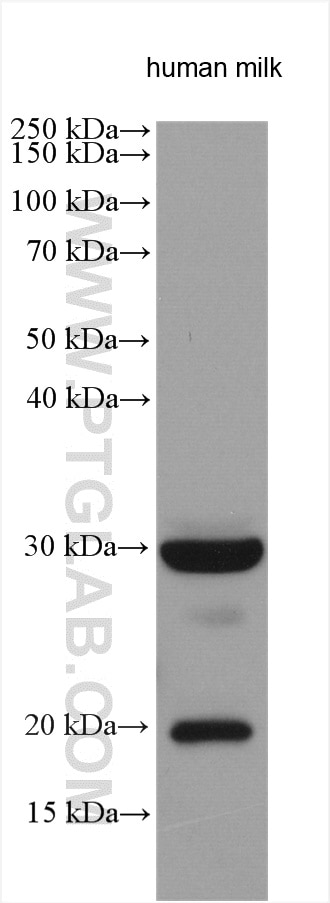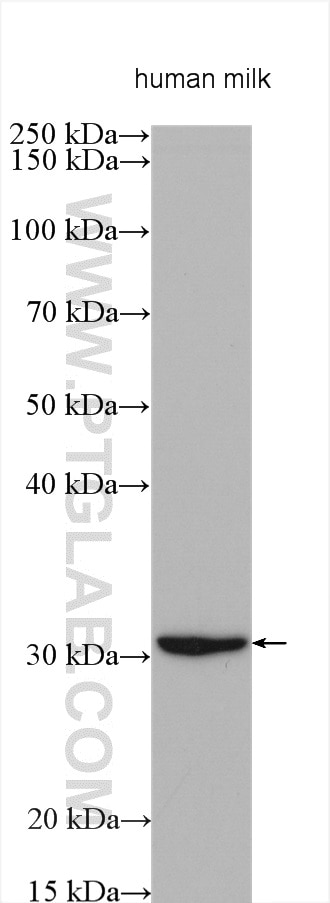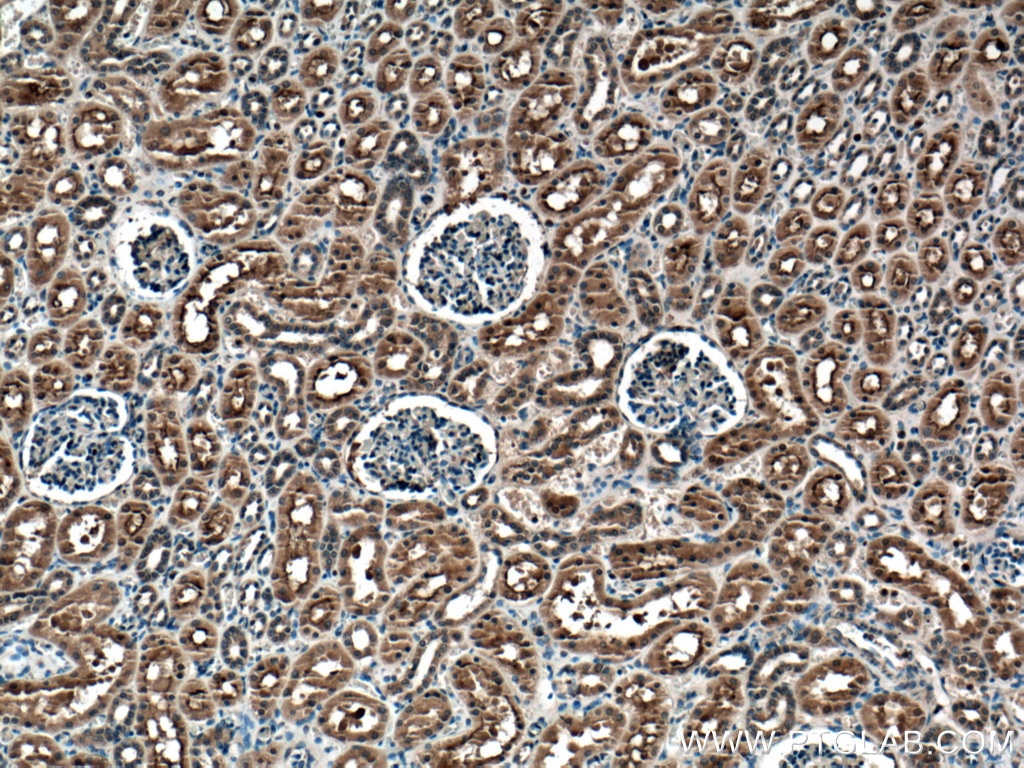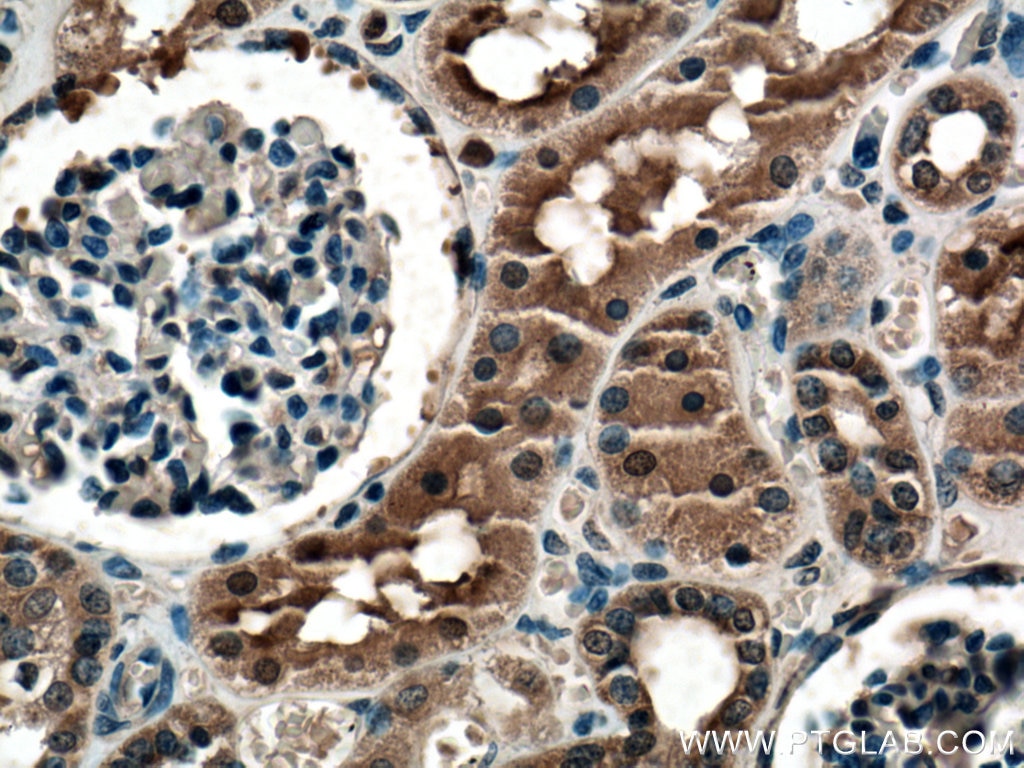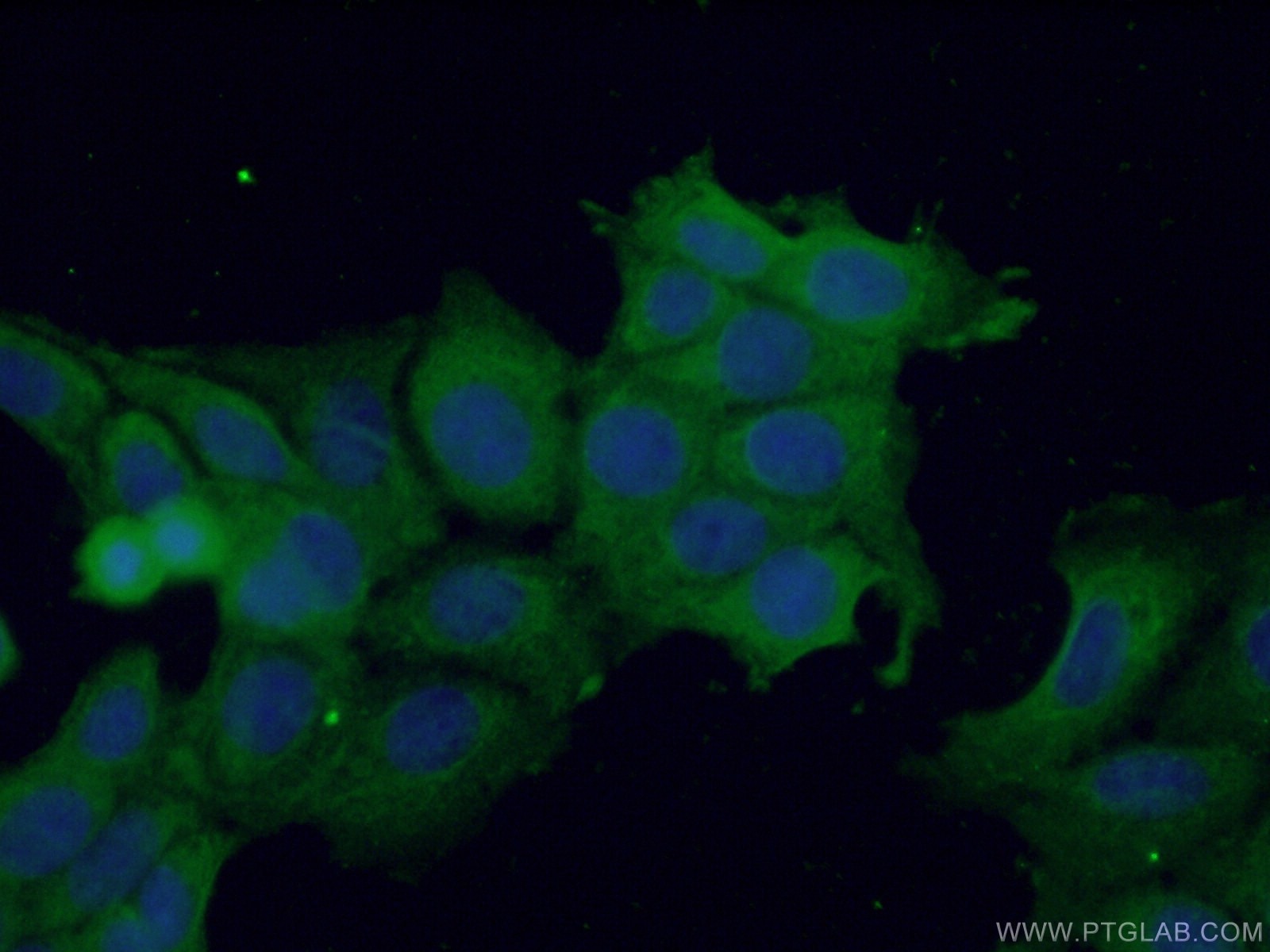Validation Data Gallery
Tested Applications
| Positive WB detected in | human milk |
| Positive IHC detected in | human kidney tissue, human lymphoma tissue Note: suggested antigen retrieval with TE buffer pH 9.0; (*) Alternatively, antigen retrieval may be performed with citrate buffer pH 6.0 |
| Positive IF/ICC detected in | MCF-7 cells |
Recommended dilution
| Application | Dilution |
|---|---|
| Western Blot (WB) | WB : 1:500-1:3000 |
| Immunohistochemistry (IHC) | IHC : 1:50-1:500 |
| Immunofluorescence (IF)/ICC | IF/ICC : 1:50-1:500 |
| It is recommended that this reagent should be titrated in each testing system to obtain optimal results. | |
| Sample-dependent, Check data in validation data gallery. | |
Published Applications
| KD/KO | See 1 publications below |
| WB | See 9 publications below |
| IHC | See 1 publications below |
| IF | See 1 publications below |
Product Information
27064-1-AP targets TRAIL in WB, IHC, IF/ICC, ELISA applications and shows reactivity with human samples.
| Tested Reactivity | human |
| Cited Reactivity | human, mouse |
| Host / Isotype | Rabbit / IgG |
| Class | Polyclonal |
| Type | Antibody |
| Immunogen | TRAIL fusion protein Ag25746 相同性解析による交差性が予測される生物種 |
| Full Name | tumor necrosis factor (ligand) superfamily, member 10 |
| Calculated molecular weight | 281 aa, 33 kDa |
| Observed molecular weight | 33 kDa, 20 kDa |
| GenBank accession number | BC032722 |
| Gene Symbol | TRAIL |
| Gene ID (NCBI) | 8743 |
| RRID | AB_2880737 |
| Conjugate | Unconjugated |
| Form | Liquid |
| Purification Method | Antigen affinity purification |
| UNIPROT ID | P50591 |
| Storage Buffer | PBS with 0.02% sodium azide and 50% glycerol{{ptg:BufferTemp}}7.3 |
| Storage Conditions | Store at -20°C. Stable for one year after shipment. Aliquoting is unnecessary for -20oC storage. |
Background Information
TRAIL, also known as CD253 or TNFSF10 (tumor necrosis factor superfamily member 10), is a typical death ligand expressed on natural killer cells and cytotoxic T lymphocytes. This protein preferentially induces apoptosis in transformed and tumor cells, but does not appear to kill normal cells although it is expressed at a significant level in most normal tissues. TRAIL induces apoptotic cell death in cancer by binding to its functional death receptors, death receptor (DR) 4 (TNFRSF10A/TRAIL-R1) and DR5 (TNFRSF10B/TRAIL-R2) to activate the extrinsic apoptosis pathway. TRAIL also activates c-Jun N-terminal kinase (MAPK8/JNK) and the transcription factor nuclear factor-κB (NFκB). The binding of this protein to its receptors has been shown to trigger the activation of MAPK8/JNK, caspase 8, and caspase 3.
Protocols
| Product Specific Protocols | |
|---|---|
| WB protocol for TRAIL antibody 27064-1-AP | Download protocol |
| IHC protocol for TRAIL antibody 27064-1-AP | Download protocol |
| IF protocol for TRAIL antibody 27064-1-AP | Download protocol |
| Standard Protocols | |
|---|---|
| Click here to view our Standard Protocols |
Publications
| Species | Application | Title |
|---|---|---|
Stem Cells Transl Med Site-Specific Integration of TRAIL in iPSC-Derived Mesenchymal Stem Cells for Targeted Cancer Therapy. | ||
Int J Pharm Fusion of an EGFR-antagonistic affibody enhances the anti-tumor effect of TRAIL to EGFR positive tumors. | ||
Arthritis Res Ther IL13Rα1 protects against rheumatoid arthritis by combating the apoptotic resistance of fibroblast-like synoviocytes. | ||
Cell Biosci Long noncoding RNA TANCR promotes γδ T cells activation by regulating TRAIL expression in cis.
| ||
J Nat Prod Sanggenon C Suppresses Tumorigenesis of Gastric Cancer by Blocking ERK-Drp1-Mediated Mitochondrial Fission | ||
Phytomedicine Evodiamine inhibits ESCC by inducing M-phase cell-cycle arrest via CUL4A/p53/p21 axis and activating noxa-dependent intrinsic and DR4-dependent extrinsic apoptosis |
